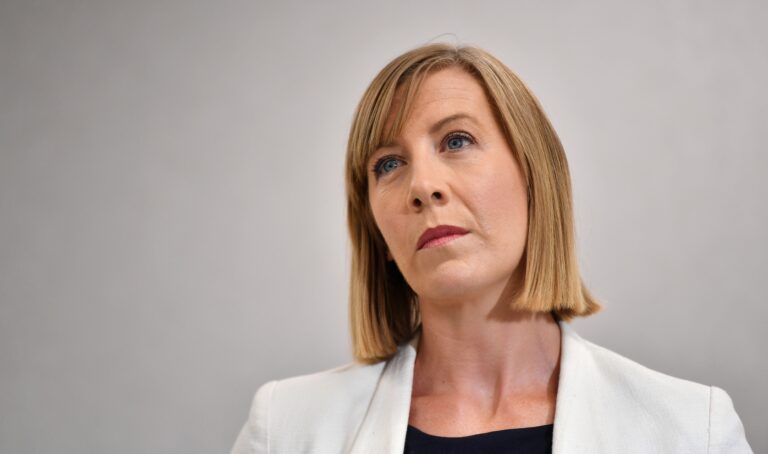
Clearway for abortion clinics

by ERIKA ECHTERNACH
The NSW upper house passed a bill on 24 May to implement 150-metre safe access zones around reproductive health clinics.
The safe access zones would protect women seeking an abortion by making interfering with, harassing or recording people entering or exiting a reproductive health clinic without their consent a criminal offence. Violating the safe access zones could result in up to six months in prison, or up to 12 months for a second offence.
Parliament’s approval of the safe access zone bill comes in the wake of last weekend’s Irish Referendum, which repealed a constitutional amendment essentially banning abortion. The Irish voted to legalise abortion by an overwhelming 66.4 percent.
The bill passed by the Legislative Council on Thursday was co-sponsored by Labor’s Penny Sharpe and the Nationals’ Trevor Khan in a surprising display of solidarity between the MPs’ parties.
A long-time advocate for women’s rights, Ms Sharpe has spent her political career fighting for individuals’ reproductive rights and to shield those who choose an abortion from harassment.
“Women should have the right to seek medical treatment with privacy and dignity and without the interference of others,” Ms Sharpe said.
Mr Khan said he had known that protesting had become an issue in Newcastle but was more recently made aware of the larger scope of the problem, which prompted him to co-sponsor the safe access zone bill.
“The bill came along, and I thought it was a worthwhile bill,” Mr Khan said.
Ms Sharpe echoed the sentiment that the lack of safe access zones is a pervasive issue: “The current laws in NSW are failing women. Women are being harassed, abused and photographed with when they are trying to enter reproductive health clinics.”
Paul Nattrass, the practice manager at The Private Clinic, said disruptive protests have taken a toll on the clinic for the past 15 years.
Mr Nattrass added that some receptionists have quit because they found strangers calling them by name and attempting to engage in religious conversations on a regular basis too stressful.
The protesters have an even bigger impact on patients, who are already emotionally vulnerable. Protesters often strategically place themselves directly in the path of women entering the clinic, sometimes moving from the front to the back entrance to better target patients.
“They call it peaceful protesting, but what they’re really trying to do is intimidate and discourage patients from having the procedure,” Mr Nattrass said.
Kitty Grozdich, the nurse unit manager at the Marie Stopes Australia Clinics in Sydney, said every abortion provider in NSW faces intense harassment from protestors, which is why safe access zones are a necessity.
In addition to local reproductive health clinics, the Australian Medical Association, the Council for Civil Liberties and the Country Women’s Association are all in favour of free access zones.
Although a party-room decision required Labor Party members to support the bill, both the Liberal and National parties voted by conscience, supplying the additional votes needed to reach 21 and send the bill to the lower house.
Now the only obstacle separating the bill from becoming a law is the approval of the lower house, which is expected to vote on the law in early June.
If the lower house passes the bill, NSW will join the ranks of Victoria, ACT, Tasmania and the Northern Territory, each of which have already passed legislation to enact safe access zones.
Based on the Green Party’s position in favour of safe access zones and how the other Legislative Assembly members will most likely cast their votes, Mr Khan said he is tentatively optimistic about the outcome.
“We’re quietly confident at the moment,” Mr Khan said. “I think we can get enough votes to put it across the line.”
Ms Sharpe agreed that responses to the bill have been largely positive.
“Trevor Khan and I have been buoyed by the strong support our bill received in the Legislative Council, we are working hard for a similar result in the Legislative Assembly,” Ms Sharpe said.
Alex Greenwich, the independent member for Sydney, said he will certainly be supporting the bill when the lower house votes next month.
Similarly, Jenny Leong, Newton’s member of the Legislative Assembly, said she will 100 per cent support the bill in June.
Although the bill has enjoyed broad support, both Mr Khan and Ms Sharpe were careful not to assume victory and stressed the importance of continuing to build support for instituting safe access zones.
“We encourage people who feel strongly about the introduction of safe access zones to speak to their local members and urge them to support our bill,” Ms Sharpe said.
Regardless of whether the Legislative Assembly votes to make the safe access zones bill a law, abortion remains a criminal offence in NSW. An abortion may legally be obtained only if continuing the pregnancy poses a threat to the woman’s physical or mental health.
However, Ms Leong and her party are striving to reform abortion laws.
“While this bill is a step in the right direction, we still need to see abortion removed from the Crimes Act in NSW. The Greens will continue to work with the community until every woman can access a safe and legal abortion in NSW,” Ms Leong said.
Considering the Greens’ goal to ultimately decriminalise abortion and Ireland’s recent legalisation of abortion, change may be on the horizon.









